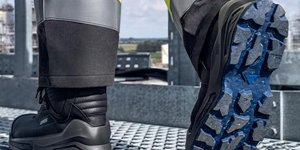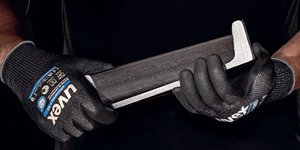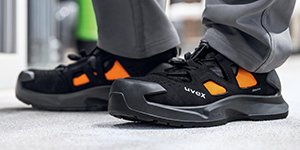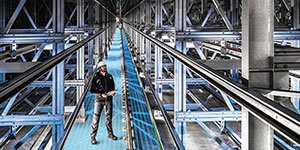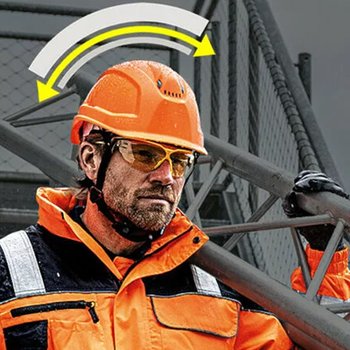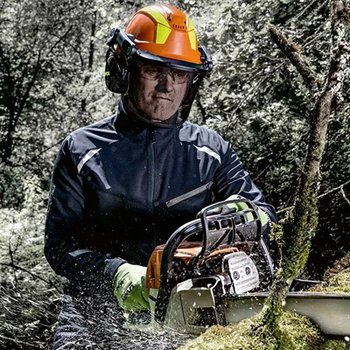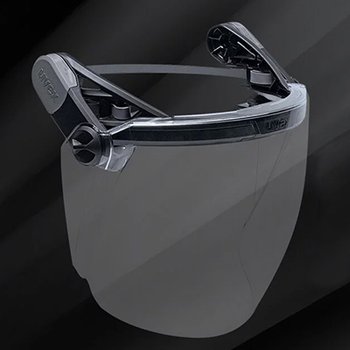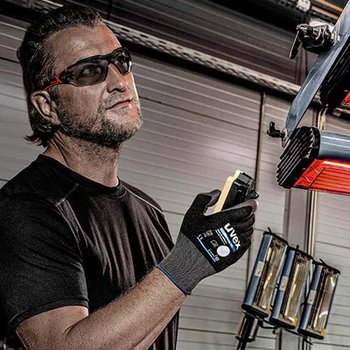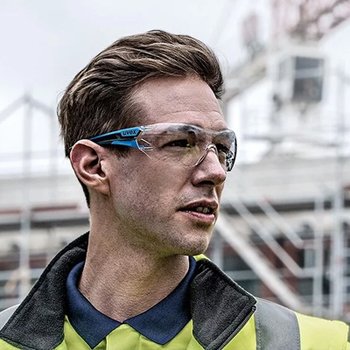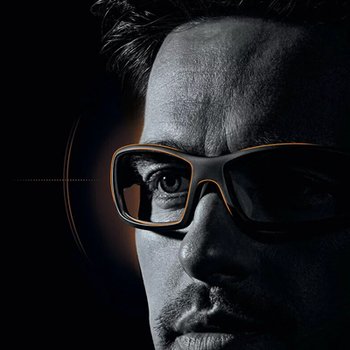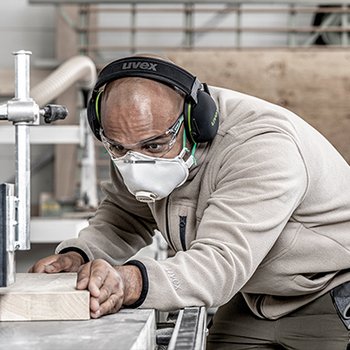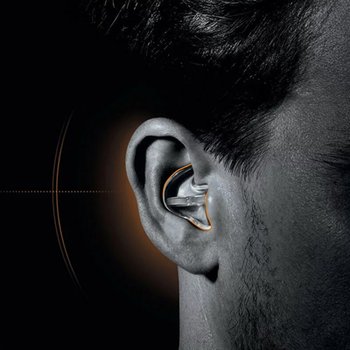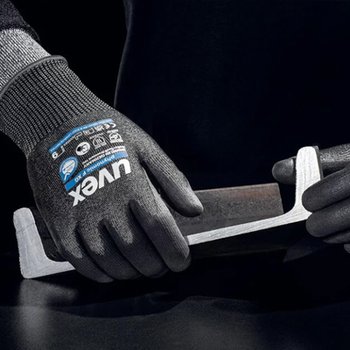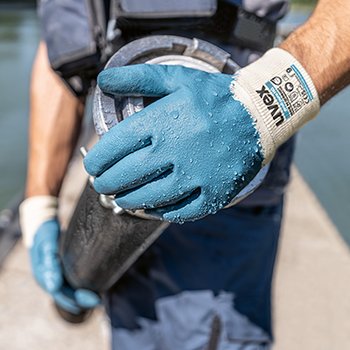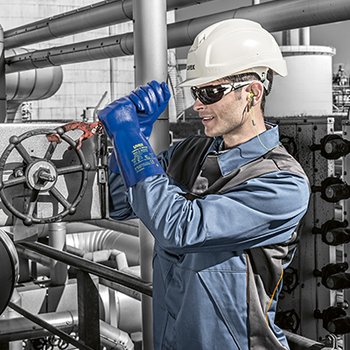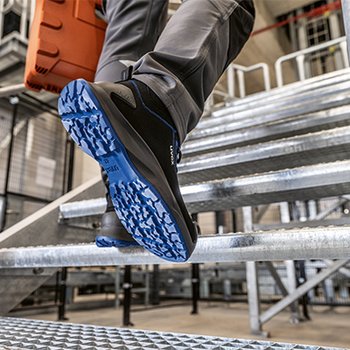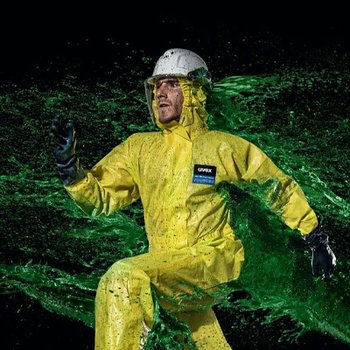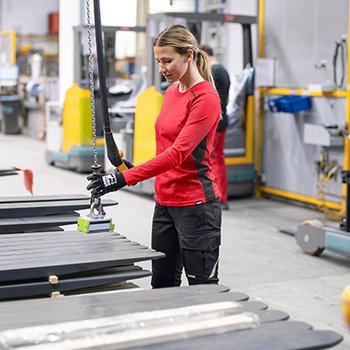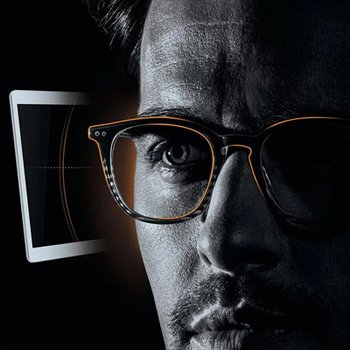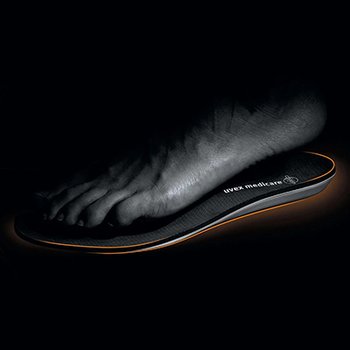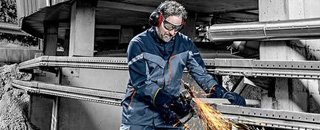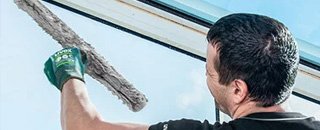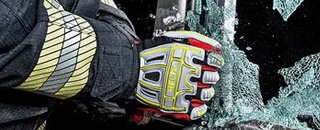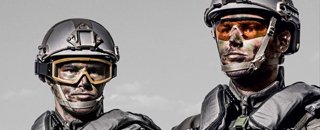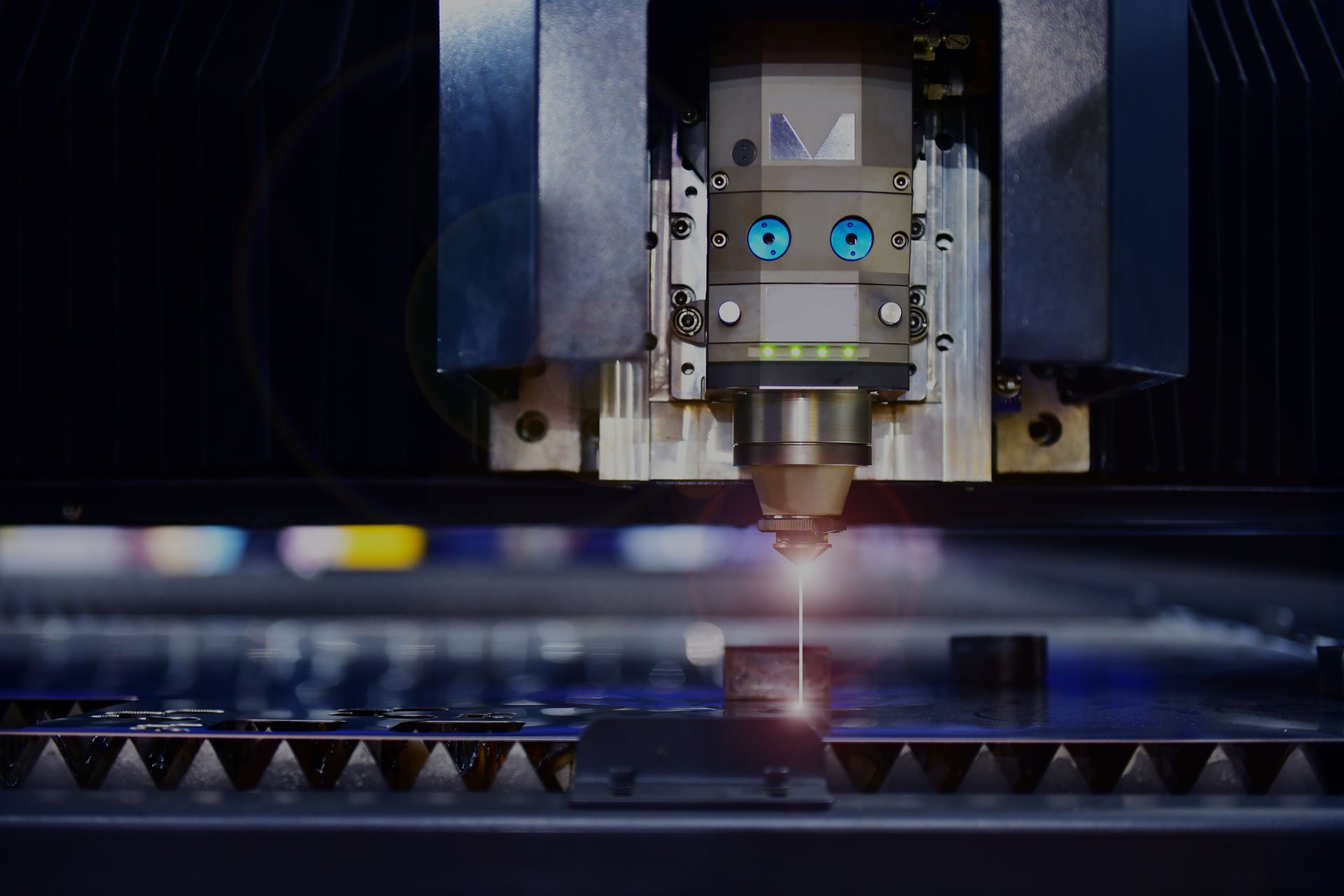
Laser safety officers – ensuring the safe use of laser equipment
Laser safety officers are experts on laser equipment and the protective measures needed to ensure its safe use within the company. They may be employees of the company itself or external persons, who have completed a laser safety officer course with a final exam in accordance with OStrV. We have summarised all the key information on laser safety officers (LSO) below.
What tasks are laser safety officers expected to carry out in accordance with OStrV and TROS?
When do employers have to appoint a laser safety officer?
How is a laser safety officer appointed?
Must a laser safety officer be present every time a laser is used?
What are the prerequisites for becoming a laser safety officer?
Top-level laser safety officer courses and further training at the uvex academy
Do laser safety officers have to undergo further training?
Laser safety officer courses and other occupational safety seminars at the uvex academy
What tasks are laser safety officers expected to carry out in accordance with OStrV and TROS?
Laser safety officers’ work focuses on employee safety and the prevention of hazards caused by laser beams. If potential hazards are detected and eliminated at an early stage and processes are modified accordingly, timely and effective action can be taken to make work processes safer and easier.
According to the German occupational health and safety regulation on artificial optical radiation (OStrV) and technical regulation for artificial optical radiation (TROS, para. 5.1 TROS General Information, version: July 2018), the tasks of a laser safety officer (LSO) include
- providing advice and support to employers and occupational safety officers for the preparation of a risk assessment (which must be updated yearly!), a safety assessment and the implementation of protective measures,
- defining and implementing operational safety measures and regularly checking whether they are effective,
- selecting the appropriate personal protective equipment for the respective workplace,
- advising those responsible for purchasing and commissioning the laser equipment,
- testing the safety of the laser equipment,
- regularly training all employees at the company who work with laser equipment on how to correctly use the laser systems, on the dangers of laser beams and on the safety measures to be observed; the training also covers how to behave in an area with lasers and on the correct signage for laser equipment (this is usually found on the laser system itself, although online formats are also permitted),
- ensuring and checking that the laser systems are being used correctly and safely and that all safety and protective measures are complied with,
- reporting to the employer if safety measures are not followed or if equipment is misused,
- supporting the company medical officer and occupational safety officer in investigating accidents caused by laser beams, for example, and
- checking laser safety calculations and assessing potential hazards (in an advisory capacity) – the actual calculations are made by the person trained in and responsible for measurements and calculations.
When do employers have to appoint a laser safety officer?
In Germany, the occupational health and safety regulation on artificial optical radiation (OStrV) stipulates that employers must appoint in writing a laser safety officer before a Class 3R, 3B or 4 laser device is used. In other European countries, the appointment of a laser safety officer as per OStrV only applies to Class 3B and 4 lasers. The length of time for which the laser equipment has been operational does not play a role in this. Examples in these classes include laser scanners, laser pointers, construction site lasers (3R), show lasers, research lasers, low-level laser therapy devices (3B), laser systems for medical applications and high power lasers for cutting, welding, cleaning and lettering with laser beams (4). Laser equipment in Class 3R and above must also be registered with the relevant employers’ liability insurance association.
The laser classes are defined by the international standard IEC 60825-1 and indicate the potential hazards of the laser from levels one to four. When using Class 1, 1C and 2 laser devices, hazard controls by a person with specialist knowledge are not required, while for Class 1M, 2M and 3A laser devices, the involvement of a laser safety officer is recommended, but not mandatory. Examples of Class 1 and 2 laser devices include laser printers, DVD or CD burners, pilot lasers or wireless presenters with laser pointers used in an educational setting.
How is a laser safety officer appointed?
The employer creates a certificate of appointment, in which the tasks, duties and rights of the laser safety officer (LSO) are set out. The BG ETEM (Employer’s Liability Insurance Association for Energy, Textiles, Electrical and Media Products) provides a suitable template for this purpose, which can be adapted as required. The employer gives this to an employee in their company or an external person, who holds a laser safety officer certificate in accordance with OStrV and TROS, and thus appoints them. It is not sufficient to do this verbally. If several laser safety officers are appointed, the area of responsibility of each officer must be defined and specified in writing. The areas of responsibility should not overlap. It is recommended to have at least two people trained as laser safety officers at the company, to ensure cover in the event of holiday or illness.
Must a laser safety officer be present every time a laser is used?
The safe operation of the laser equipment must generally be monitored, in the form of spot checks, for example. For medical applications however, it must be ensured that the laser safety officer can be on site within a short time (up to 30 minutes). For other applications, it is also strongly recommended that the laser safety officer can be reached in the event of problems and can come to the location of the laser quickly. It is therefore generally recommended to appoint someone as a deputy. This deputy should have the same expertise as the appointed laser safety officer.
What are the prerequisites for becoming a laser safety officer?
In general, safety officers, technicians and even team leaders can become laser safety officers. In accordance with TROS, para. 5.1 (1) TROS General Information, version: July 2018, a prerequisite for participation in a laser safety officer course is a qualification in a relevant field (technical, medical, cosmetic or scientific) or comparable professional experience of at least two years. Another mandatory requirement is that the person concerned has, in accordance with OStrV § 5, taken part in a course or training for laser safety officers to ensure they have the necessary basic knowledge and successfully completed this by passing an exam (usually a multiple choice test). The German technical regulation for artificial optical radiation (TROS) specifies that the new laser safety officers also need proof that they have completed the training course, i.e. a laser safety officer certificate.
Employers’ liability insurance associations offer laser safety officer seminars compliant with TROS, for example, but there are also other providers, such as the uvex academy. It is important that these seminars comply with the German technical regulation for artificial optical radiation (TROS) to ensure the employers’ liability insurance association recognises the certificates from these laser safety officer courses. It is also important that the persons in question keep their knowledge up to date through further training for laser safety officers. Technical knowledge must be refreshed after five years at the latest and a new certificate acquired.
Top-level laser safety officer courses and further training at the uvex academy
The uvex academy has over 15 years of experience in offering laser protection courses and training for beginners and advanced users, which are ISO 9001:2015-certified and comply with the specifications of OStrV and TROS. The portfolio of six laser protection courses are given in German, and, in the case of the Laser Safety Officer course, in English. What sets the uvex academy laser protection courses apart is the useful combination of theoretical content with practical demonstrations at our laser training centre and your choice of training location: your employees can take the laser safety course at our uvex academy in Fürth or we can come to your company.
Please contact us for answers to any questions you may have and to book a date for our in-house training course. You can reach us by email (academy@uvex.de), by phone (+49 911 9736-1710) or via our contact form.
Do laser safety officers have to undergo further training?
The German Social Accident Insurance (DGUV) specifies in its guideline 303-005 that laser safety officers must undergo further training every five years to ensure they remain qualified and have the latest specialist knowledge. The intervals at which further training for laser safety officers is advisable also depends on the speed at which laser technology develops.
Laser safety officer courses and other occupational safety seminars at the uvex academy
Since 2005, the uvex academy has run over 40 certified occupational safety training courses. These include laser protection seminars as well as training courses on measuring artificial optical radiation and on noise, hand, foot and eye protection. Take a look at our training calendar to see when the next uvex laser safety officer introductory course, a laser safety awareness (LSA) training course or another course of interest is being held and to find out what each course is about.
The uvex academy’s expert trainers can also develop courses that comply with the relevant legal specifications and are tailored precisely to your company and your requirements.
If you have any questions or would like more specific advice, please contact us by email (academy@uvex.de), via our contact form or by phone (+49 911 9736-1710)! You can also register as a participant on our laser protection seminars or on other courses on the training calendar itself.

